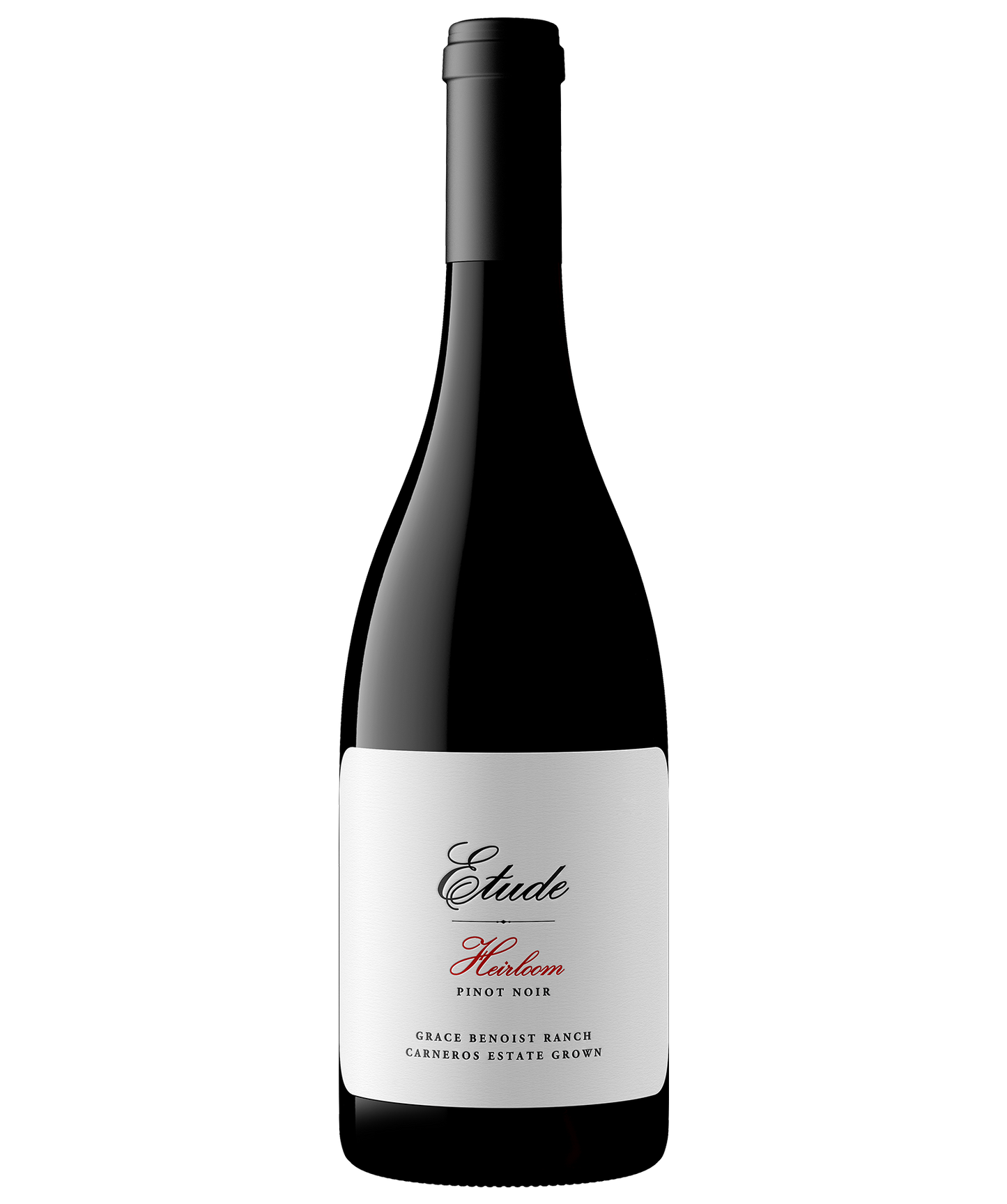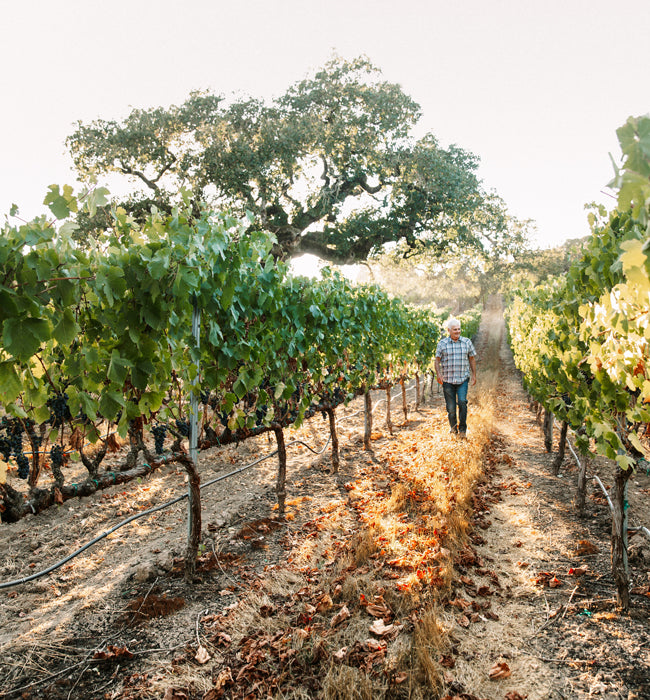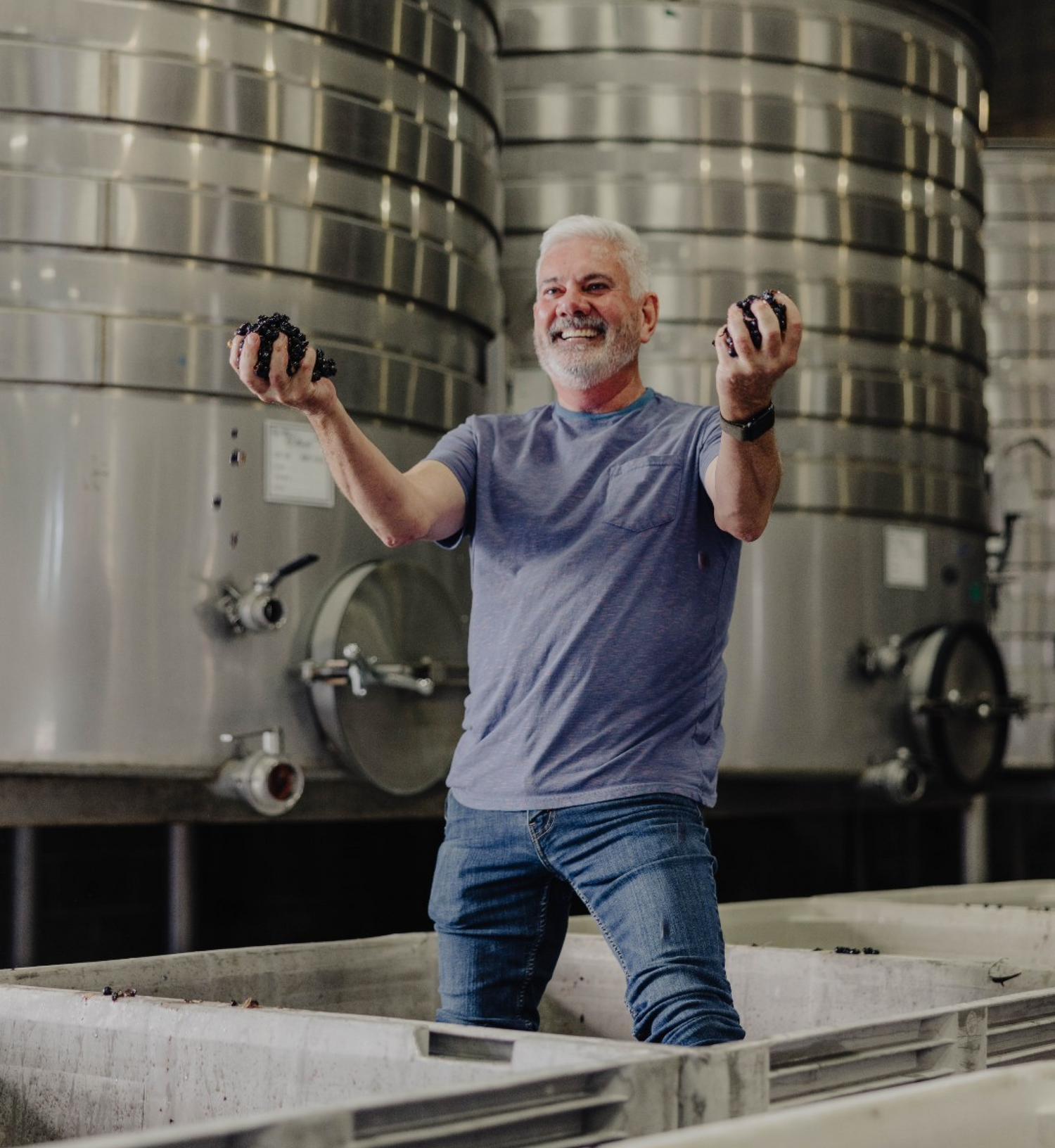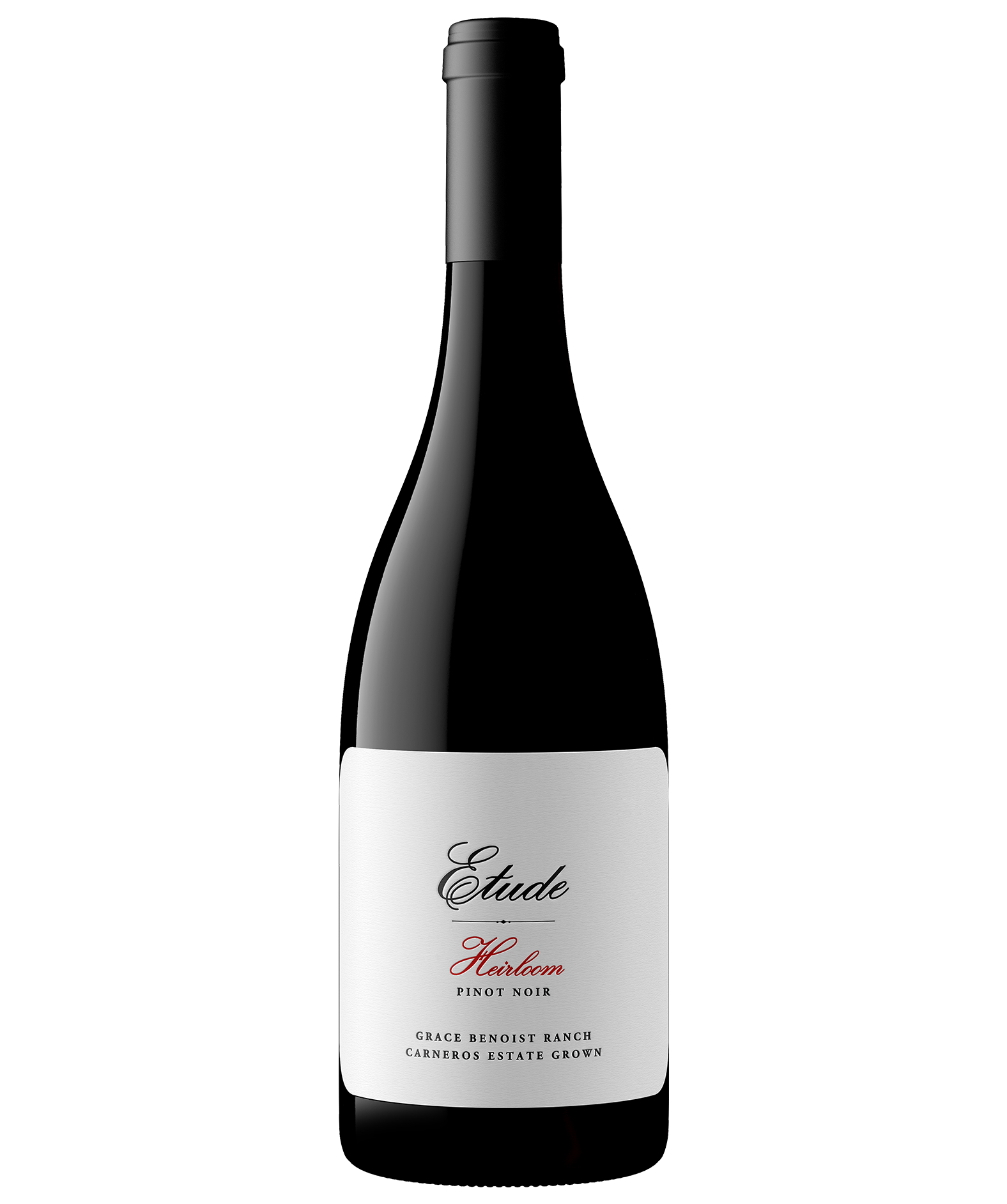2017 Heirloom Pinot Noir Magnum
2017 Heirloom Pinot Noir Magnum
Etude’s Heirloom Pinot Noir, produced from several heirloom selections of the variety, is dedicated to the celebration and preservation of plant diversity. It exemplifies the singular, superior ...
Etude’s Heirloom Pinot Noir, produced from several heirloom selections of the variety, is dedicated to the celebration and preservation of plant diversity. It exemplifies the singular, superior wines – unusually expressive, concentrated and pure – that issue from original varieties or vine selections chosen for the inherent wine quality they produce.
- Alcohol 14.9%
- Vintage 2017
Couldn't load pickup availability
Are you a Wine Club Member?
Specifications
Specifications
- Vintage: 2017
- Region: Carneros
- Appelation: Carneros
- ABV: 14.9
- Varietal: Pinot Noir
Tasting Notes
Tasting Notes

Expert reviews

The Vineyard
Grace Benoist Ranch
The Year in Review
The 2017 vintage
-
Carneros
In the micro-climate of the Carneros, cool weather during spring flowering impacted vine yields, but with lower yields quality generally increases, and that is the tale of this vintage. Ample winter rains continued to recharge aquifers and rebuild storage lost during drought years. Near perfect summer weather with traditional diurnal temperature swings averaging 25-40 degrees defined the sunny days, cool nights mantra. Where August cooled a bit, allowing for extended hang time and allowing flavors to more fully develop, a high-pressure system stalled and held cooling fog off the coast line as September arrived, leading to the earliest harvest experienced at Grace Benoist, finishing just after Labor Day.
-
Napa
The 2017 vintage in the Napa Valley was smaller yielding but high in quality. The region enjoyed much needed rain during the winter months ending the drought. A short period of warmer than usual temperatures during Labor Day weekend accelerated harvest for early ripening grape varieties, resulting in an intense and, at times, unpredictable harvest. Though yields were lower than usual, the wines show exceptional flavor intensity and conditions were perfect for producing a wine with beautiful fruit as well as tremendous concentration of flavors, highly saturated color, and layers of complexity.
-
Willamette Valley
Ample rain and winter snow continued with a wet spring, a bit on the cool side. Bud break was relatively normal in mid-April, but a heat spike followed in May, pushing flowering even as a cool June followed. Intermittent heat spikes continued through July and August, but a cool September led to a relatively late harvest.
-
Central Coast
For many on the Central Coast, the 2017 vintage was challenging, but for Etude, the major weather impacts that arrived in September were post-harvest, since all fruit was harvested between August 30 and September 5. Just a bit later, in mid-September, the region saw hail, lightning and wind that got growers attention. Record-setting heat, with warm days and nights, impacted fruit. But Etude was spared. In springtime, during bloom, some cooler temperatures and a bit of wind created shatter, with fewer clusters on the vine. But less is more, since flavors were concentrated.

Crafted Excellence
Winemaking


